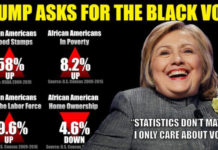As a partner and chief diversity officer at Thompson & Knight, Pauline Higgins was not afraid to press the issue of hiring minorities at the 126-year-old Texas law firm. But when she left in 2008, she was replaced by an associate with less influence.
Now, current and former partners say, the diversity committee meets less often, and the firm has fewer black lawyers than before. It is a trajectory familiar in many elite realms of American professional life. Even as racial barriers continue to fall, progress for African-Americans over all has remained slow — and in some cases appears to be stalling.
“You don’t want to be a diversity officer who only buys tables at events and seats people,” Ms. Higgins said recently. “It’s about recruiting and inclusion and training and development, with substantive work assignments.”
Nearly a half-century after a Texan, President Lyndon B. Johnson, helped usher in the era of affirmative action, the Supreme Court is poised to rule as early as this week on whether the University of Texas can continue to consider race as one of many factors in its admissions policy. It is a case that could have a profound impact on race-based affirmative action programs across the nation, and it has reignited a discussion of how much progress minorities, blacks in particular, have made in integrating into some of the most sought-after professions, especially since the recession.
Only a little more than 1 percent of the nation’s Fortune 500 companies have black chief executives, although there are some prominent exceptions, like Kenneth I. Chenault of American Express and Ursula M. Burns of Xerox. At the nation’s biggest companies, about 3.2 percent of senior executive positions are held by African-Americans, according to an estimate by the Executive Leadership Council, an organization of current and former black senior executives.
While about 12 percent of the nation’s working-age population is black, about 5 percent of physicians and dentists in the United States are black — a share that has not grown since 1990, according to an analysis of census data that was prepared for The New York Times by sociologists at Queens College of the City University of New York. The analysis found that 3 percent of American architects are black, another field where the share has not increased in more than two decades.
The share of the nation’s lawyers who are minorities and women, which had been growing slowly but steadily for years, fell in 2010 for the first time since NALP, the National Association for Law Placement, began keeping statistics in 1993. The deep recession not only disproportionately hurt African-Americans in many fields, but it also led businesses to make diversity programs less of a priority. And a growing number of states — including Arizona, Michigan, Nebraska, New Hampshire and Oklahoma — have moved to ban race-based affirmative action in recent years. California, Florida and Washington did so in the 1990s.
Such numbers raise the question of whether the private sector’s commitment to affirmative action and diversity programs is eroding, even as the Supreme Court again considers a high-profile case involving a public university.
“We’re at a precipice,” said John Page, the president of the National Bar Association, an 88-year-old group representing black lawyers and judges. “There is diversity fatigue. We could fall backwards very quickly.”
Even more worrisome to some people than the small number of African-Americans at the upper echelons of many organizations is a lack of progress at entry levels. In Texas legal circles, there have been some notable symbolic gains for black lawyers at the top of the profession; both the State Bar of Texas and the Houston Bar Association just elected their first black presidents. But many black lawyers said they worried that there were fewer young black lawyers in the pipeline for future leadership roles.
While blacks made up only 2.65 percent of the partners at Houston firms last year, that figure represents progress as the share of black partners more than doubled over the past decade, according to statistics kept by NALP, the law placement association. At the lower levels of firms, black lawyers have lost some ground, however. Houston firms reported that 4.74 percent of their associates last year were black, down from 4.96 percent in 2002, the association said.
Lisa Tatum, the black lawyer who will take over the presidency of the Texas bar next month, said there was concern that firms were not pursuing diversity as aggressively as they did before.
“There’s no question there’s been some pullback,” said Ms. Tatum, who works in San Antonio. “There are some firms that look at what they have done, they look at President Obama, and they say we’re there.”
The recession set back diversity efforts in many fields. After the financial crisis hit in 2008, the Conference Board, a business membership and research organization, asked senior executives how the downturn was changing their priorities. Among the several challenges they deemed less pressing was “achieving diversity and representation in the cross-cultural work force.”
Somewhat lost in the legal arguments over affirmative action are the less tangible, more subtle forces that can determine professional success, more than a dozen black lawyers here, in San Antonio and elsewhere in Texas said in interviews. Social rituals can play a big role in determining who makes it on to the partnership track in the exclusive world of white-shoe firms, and whether those partners can bring in business as rainmakers.
Gerald Roberts, a black lawyer who was a partner at Thompson & Knight before leaving in 2010, said that social relationships left some black lawyers at a distance from their white colleagues and potential clients. “For the most part, they don’t go to church together on Sunday enough, they don’t have dinner together enough, and they don’t play enough golf together to develop sufficiently strong relationships of trust and confidence,” he said.
A black associate at one Houston firm, who requested anonymity so as not to jeopardize his chances of making partner, used a familiar legal term to describe his unease at work, saying he sometimes felt there was a “rebuttable presumption” that he was there to fill a quota and was not as qualified as white colleagues.











I think that much of the problem in the legal community in general could be the following:
Too many lawyers
Large firms will hire only the top 10% of a class
Top law school rankings are statistically gamed
Large law firms hire from the top law schools first
There are many talented lawyers graduating that are not getting a chance at any law firm. Law school tuition is at a record high.
I think that many legal grads should look into other careers.
The positive is that they know how to think as well as write well. The negative is that they are usually encumbered with massive debt. The law schools have done a great job of training and selling a bill of goods. There are just too many lawyers. Many law schools have misrepresented the job opportunities.
Affirmative Action for EurAmericans = 375 years (intense and uninterrupted)
Affirmative Action for AfrAmericans = 45 years (weak and sporadic)
I use this equation in my new book, “RaceMan Answers: America’s Toughest Questions about Race & Inequality”
To mind little “black” mind, the goal of “diversity” has always been a clever, ahistorical dodge, and a ploy to avoid the results of my equation. “White” Americans are economically so far ahead of “Black” Americans because they’ve been given entitlements based on the philosophy and policies of our Skinocracy.
(The average EurAm family is worth 20 times the average AfAm family, according to a CNN study last year)
“Whites” have been playing the proverbial Race Card in America from the beginning.
The fact that our Supreme Court is, even as I write, considering ending affirmative action for AfAms in any form only underlines the real problem – the refusal of our “leaders” to finally confront and correct the USA’s founding flaw – slavery and white supremacy.
Right?
The fact remains hiring african americans has little to do with achievement but access. The white community feels no responsiblity for others and the issue is not qualifications but culture and discriministration. People hire who they know and not necessarily who is best for the job. Two candidates with the same qualifications one black and one white if the hiring manager is white he will pick who is closest to him and more like his culture. If you dont attend the same events and same schools you will not have the same jobs. As an hbcu grad (historically black college) i know plenty of doctors and lawyers and professionals who are african american they simply choose not to work at fortune 500 companies because you many times have to compromise or face discrrimination in addition to doing your job well usually with half the resources your counterparts have. White people dont know their neighbors and feel ‘obligated’ . As with segregation you cant create law to change the heart, when theyd rather not step outside of their circle. Their loss. I will just take a pay cut.
As genetic diversity is crucial to evolution, so is perhps the socially inclusive diversity promotion efforts, which might often prove rewarding in terms of building organisational health and talent pool with a wide range of cultural experiences.
I think its bad business to pass over people who are qualified and hire people who are less qualified. That’s not going to move a country or a business forward. But it does give people who are passed over the opportunity to form their own businesses and work for themselves. Like Hype said sometimes you gotta take the pay cut and work outside of the top companies because the top companies will have discrimination and a lot of other headaches that you (probably) won’t experience working for a black organization.
I agree with Mickey that top law schools don’t hire a large portion of people and law grads should look elsewhere to apply their skills. But many people can’t let go of their dreams and just take any job when they’ve been bragging about how their degree is going to get the some special job that no one else can get. Can people really take that pay cut or do they just want to have a Benz in their driveway, no matter the psychological cost?